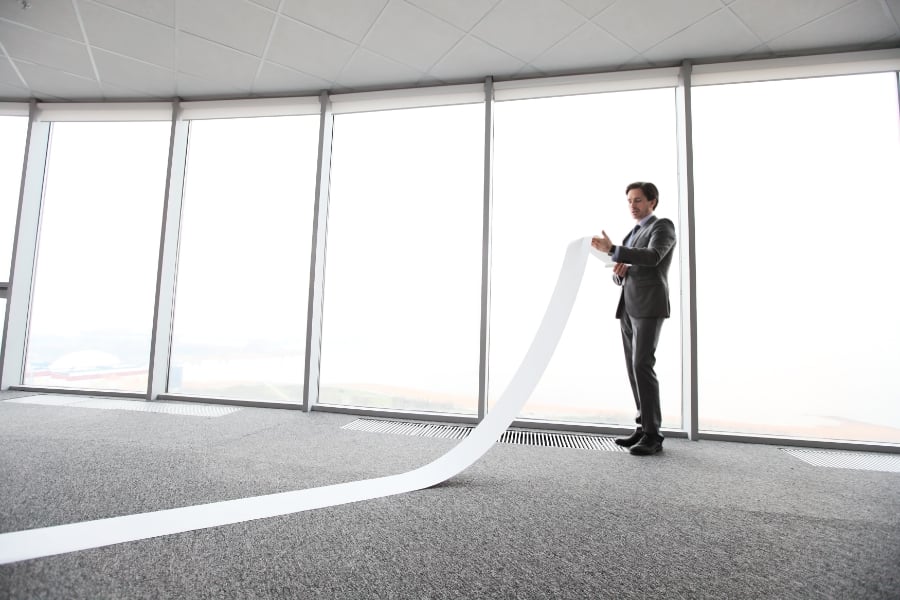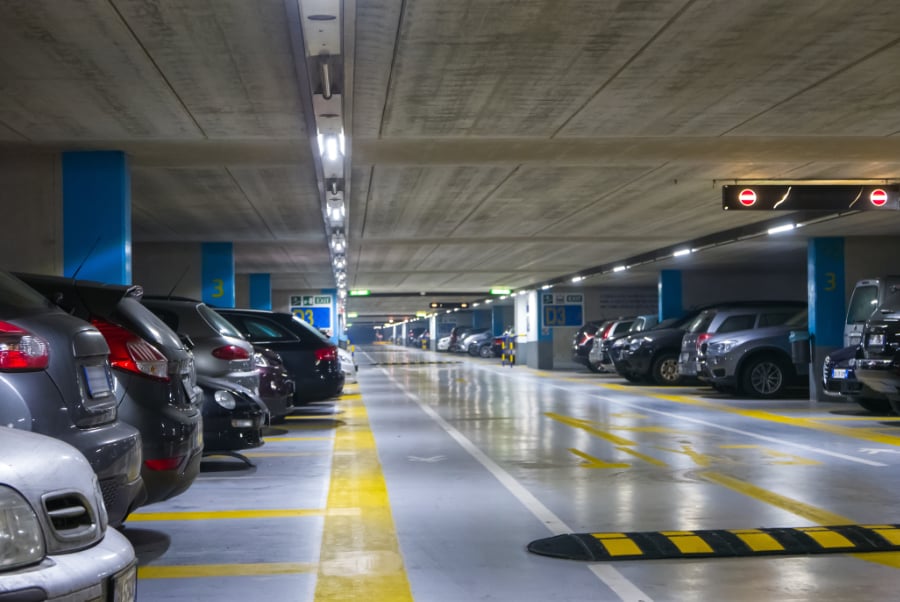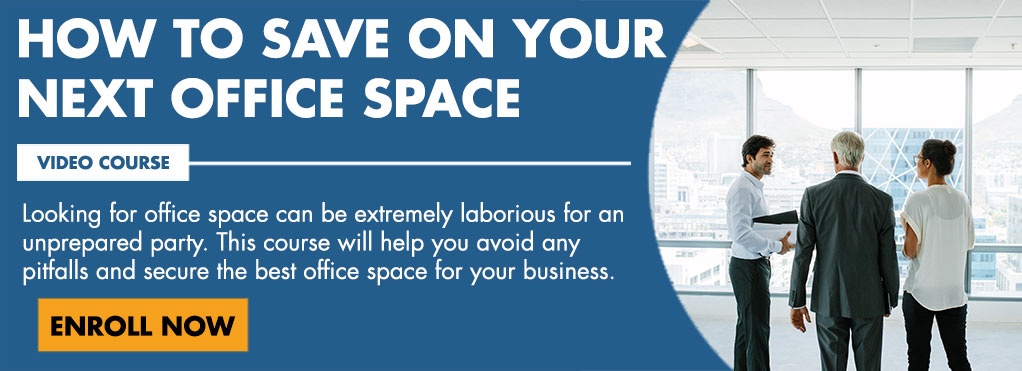In this article, you'll learn:
- Key considerations like location, space, and costs when selecting an office.
- The importance of touring with a tenant rep broker for expert insights.
- Essential questions to ask and details to check during tours.
- How to evaluate parking, office appeal, and overall suitability.
Choosing the right office space for your business cannot be overemphasized, as this can help determine how well your business thrives. Picking the wrong location could cost you clients, employees, or money down the line, while choosing the right location can provide long-lasting benefits and cost savings.
However, finding the best commercial office space for your needs can be incredibly difficult—especially if you’re not certain what to look for. To ensure you are making the right decision, here are some things to keep in mind when looking for an office space, as well as a few tips for touring potential spaces.
4 Things to Keep in Mind When Looking for an Office Space
1. Space and Facilities
Consider the facilities you need and how much space is necessary for it while allowing for realistic business growth. You should avoid office spaces that are too small or too big.

Choose an office that allows room for desks, storage, and any other necessary specific office needs, while offering a fair number of plug sockets and connectors. If possible, look for space with an existing layout that suits your needs. If such a space is not available, seek out one that can be easily modified to suit your needs, or one with a landlord who is willing to take on some of the costs of modifying the space.
2. Location and Accessibility
How easily-accessible is the location of the office space? You want to find a place that’s easy to access for both clients and employees. The right location can have a huge impact on the caliber of clients your business attracts, the amount of daily operating costs you will incur, and how well your business will thrive.
When assessing a location, consider the following:
-
Can staff, clients and prospects get there hassle-free? For example, is it just off the highway, or is it hidden deep in an area with a bunch of poorly-kept, one-way roads?
How secure is the location?
-
Are there any ancillary services like a gym, bus station, train station, coffee shop, etc. located in or near the premises?
-
Does the office have excellent delivery facilities?
-
How accessible is it for persons living with disabilities (are there plenty of ramps/elevators, signage in braille, automatic doors, etc.)?
-
Does the building have suitable amenities for your employees? For example, is there sufficient parking for your employees?
All of these have to be put into consideration while also factoring in the nature of your business.
3. Hidden Costs
What does the lease agreement cover? Is it a “full-service” gross lease, or a triple-net lease? Things like utility bills, cleaning, maintenance and repair, insurance, moving costs, HVAC, etc. may or may not be covered under the lease agreement, so it’s important to check.

The top line figure almost never covers the total cost of what you will eventually pay. Ensure you check closely to see what’s included in the lease, and possibly buy comprehensive tenant insurance to protect yourself.
4. Availability of Infrastructure
Infrastructure needs will vary from business to business—and different office spaces offer different types of infrastructure. Some office spaces come with things like postal services, internet, IT infrastructure, etc. This could be part of the package or open as an option. It’s important to look for the availability of infrastructure and services that support your business’ needs as thoroughly as possible.
You should also check the quality and consistency of the services rendered. After all, what use is a service that’s constantly interrupted or unreliable? It is important you perform due diligence to ensure you get value for your money.
6 Tips When Touring a Commercial Office Space
1. Tour with Your Tenant Rep Broker
It is not a good idea to go on an office space tour alone. Instead, bring your tenant rep broker along. This is because there are key details that you may miss, but a professional tenant representative broker would be able to spot them quickly.

In addition, a broker will give you access to critical market information. Commercial real estate is complex, and having someone who is an expert in the field can help you understand lease terms and make the best decision.
2. Have a List of Key Questions to Ask
Prepare a list of questions to ask the landlord before you arrive, and try to ensure that you get these questions answered before you leave.

While the specific questions you ask may vary depending on your business’ needs, some common questions include:
-
Who are the other tenants in the building?
-
What is the condition of the HVAC system?
-
What is the landlord’s build-out policy?
3. Do Not Reveal Any Key Information
If you are on tour with the landlord’s leasing agent, you may want to keep a poker face and avoid releasing too much information. This way, you can avoid giving the landlord leverage over your company.
To avoid releasing too much information, you can have all questions to be directed to your broker.
4. Drive Through the Parking Garage
In most cases, you are likely going to park in the designated visitor parking area. However, if you become a tenant in the building, you are not going to be parking there every day. So, it is important to check the garage for ease of movement (both in and out).

Also, check to be sure there are enough parking spaces for your employees and that the parking garage is well lit. This is to ensure comfort and security for your employees when they’re walking to the car alone early in the morning or late at night.
5. Check the Office Space More Than Once
When you visit the same space several times, you will often notice things that you didn’t see earlier. You should check the space at different times of the day to see how the space looks. In addition, you should take pictures.

This is the space you are likely going to be spending many years in, so you want to take your time making the decision of whether or not to move in..
6. Examine How the Office Will Appear to Others
Your office sends a message to others. No one will take a business seriously if the office is falling apart! So, it is important to consider what visitors would think of the elevators, lobby, and hallways as you tour the office space.
The above tips will help you find an ideal office space and complete a successful tour. Be sure to rent a space that works for you, your employees, your clients, and your business. Do not overstretch yourself on your first office space lease. As time goes on, and as your business grows, there’s always the option of upgrading.
A tenant rep broker can help you every step of the way, so be sure to always have one on your side.

Here are a few other articles we know you'll enjoy:
How IoT Can Benefit Your Office Space
Tips When Managing CRE as Your Second Job
Commercial Lease Clause Guide: What You Should Know
Subscribe to our blog for more CRE tips!!








